 |
||||||||||
Date: January 21, 2026
by P. C. Venkat
Related Articles:

In mid-2006 Genmab opened another front in its campaign to gain approval for HuMax-CD20 (generic name ofatumumab) for use in hematological cancers. It launched a second Phase III trial, this time for follicular lymphoma, the most common form of non-Hodgkin's lymphoma. As our readers will doubtless recall, the first indication for which Rituxan was officially approved by the FDA (all the way back in 1997) was non-Hodgkin's lymphoma. Starting with that toehold, by now Rituxan has become for many the first line of defense or at least a key component in their fight against lymphoma or CLL, although officially speaking, the FDA has not issued an opinion on the use of Rituxan for CLL.
The HuMax-CD20 follicular lymphoma trial targets patients who have failed Rituxan-based chemo-immunotherapy combinations or maintenance therapy with Rituxan.
The relatively low expression of CD20 in CLL makes the disease a logical target for the use of a more efficient anti-CD20 monoclonal antibody — that explains the CLL trials starring HuMax-CD20. But how about follicular lymphoma? Follicular lymphoma is characterized by a relatively strong expression of the CD20 marker and therefore might be a more difficult disease to demonstrate the higher efficiency of HuMax-CD20, compared to Rituxan. Genmab, however, has targeted this trial at a group that have failed Rituxan therapy. Once again, if HuMax-CD20 proves effective in getting a certain percentage of these patients into remission, its value would be demonstrated.
We have discussed the mechanism of action of HuMax-CD20 in prior articles (A Smarter Monoclonal on Trial). HuMax-CD20 differs from Rituxan in three important ways: first, the molecule has a better on-off time balance (attaches more firmly to the CD20 marker); second, it attaches to a different part of the CD20 epitope, closer to the surface of the B-cell (making it easier for effector cells that mate with the antibody to kill the target cell); and third, it is more efficient in utilizing complement to achieve cell kill.
The HuMax-CD20 follicular lymphoma trial was first announced in July 2026. The trial is designed to recruit 162 patients with low-grade (1 & 2) follicular lymphoma who are refractory to Rituxan in combination with chemotherapy or to Rituxan given as maintenance treatment. This is a double-blind, dose comparison study, testing HuMax-CD20 at two dosage levels. Patients in each group will receive one infusion of 300 mg of HuMax-CD20 followed by 7 weekly infusions of either 500 or 1,000 mg. You will note again, these are per-patient doses, not dependent on weight or BSA. The follow-up consists of assessment of disease status once every three months for 24 months.
It is worth pointing out that the weekly antibody dosage for this follicular lymphoma trial are significantly lower than in the Phase III HuMax-CD20 monotherapy trial for CLL, a design factor that seems to make sense given the generally higher expression of CD20 in follicular lymphoma compared to CLL. Participants should also be aware that one of the screening requirements is a CT scan intended to show the existence of enlarged nodes.
There are two principal investigators for the study: Professor Anton Hagenbeek at the University of Amsterdam and Professor Myron Czuczman at the Roswell Park Cancer Institute in Buffalo, NY. The trial is offered at ten sites in the U. S. (four listed as recruiting, the others presumably in their set-up phase) and an additional 57 sites in Europe (of which 24 are listed as recruiting). If you are in the U. S. or Europe, chances are that you will find a site that is reasonably convenient for you. Since the trial is expected to extend over 8 weeks, it is reasonably efficient in time commitment as well.
The referral contact for this trial at Genmab is Mr. Joris Wilms, MSc. Pharm. Tel: +45 7020 2728  . This is a change from the information recorded on the record at clinicaltrials.gov.
. This is a change from the information recorded on the record at clinicaltrials.gov.
Details of the trial are provided at ClinicalTrials.gov: NCT00394836. The most recent update of the clinicaltrials.gov record on this trial was as of February 8, 2026.
You can find links to all our earlier articles on HuMax-CD20 on our index page for this monoclonal antibody: HuMax-CD20. You can visit the Genmab website to get the company's own description of their monoclonal antibody. Here is the link: Genmab's HuMax-CD20 page.
As we have said before, HuMax-CD20 is likely to become an important drug for CLL, as a single agent or in chemoimmunotherapy combinations. For CLL patients this trial in follicular lymphoma is worth following, since approval for follicular lymphoma will put this antibody on a status similar to Rituxan.
As for NHL patients, a clear demonstration of the utility of this antibody in follicular lymphoma will have the intended effect of expanding options for patients who are refractory to Rituxan-containing chemoimmunotherapy or for whom maintenance Rituxan has failed. Indeed, for patients who have experienced the rare negative reaction to Rituxan (delayed neutropenia, Stevens-Johnson syndrome, etc.), the availability of HuMax-CD20 could be critical. As a fully human monoclonal antibody (as opposed to Rituxan which is chimeric, with mouse components) HuMax-CD20 may be less likely to generate allergic reactions.
If you are a follicular lymphoma patient this clinical trial may be of interest to you. If wish to investigate participating in this trial, please do discuss the idea with your doctors.
If you participate in NHL discussion groups, this could be a valuable piece of information to your fellow members and you might consider posting a link to this article.
Here is a summary of the trials involving HuMax-CD20.
| Protocol | Single Agent HuMax-CD20 in CLL |
HuMax-CD20 plus FC in CLL |
Single Agent HuMax-CD20 in FL |
| Target Disease | CLL | CLL | Follicular Lymphoma |
| Target Patient Group | Refractory to fludarabine and Campath |
First line therapy |
Refractory to Rituxan + chemotherapy or Rituxan maintenance |
| Phase | III | II | III |
| Study Design | Multi-center single arm |
Multi-center, open label double arm dose comparison |
Multi-center, double-blind randomized dose comparison |
| Protocol Duration | 5 months | 6 months | 8 weeks |
| Cohort size | 100 | 56 | 162 |
| Trial Identifier | NCT00349349 | NCT00410163 | NCT00394836 |
| Study Chair(s) | Prof. Anders Österborg Prof. William Wierda |
Prof. William Wierda | Prof. Anton Hagenbeek Prof. Myron Czuczman |
| Trial Sites | Multinational: 58 sites | U. S.: 4 sites | Multinational: 67 sites |
 Enter Keywords: |
———
Disclaimer: The content of this website is intended for information only and is NOT meant to be medical advice. Please be sure to consult and follow the advice of your doctors on all medical matters.
Copyright Notice:
Copyright © 2026-2007 CLL Topics, Inc. All Rights Reserved.
All materials contained on this site are protected by United States copyright law and may not be reproduced, distributed, transmitted, displayed, published or broadcast without the prior written permission of CLL Topics, Inc. You may not alter or remove any trademark, copyright or other notice from copies of the content.
However, you may download and print material from CLLTopics.org exclusively for your personal, noncommercial use.
———
